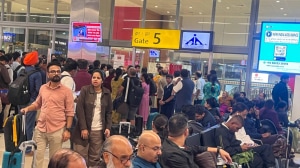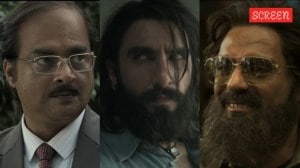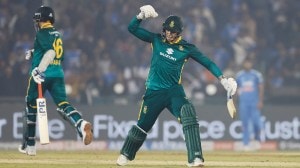Reactors can resist air crash too,says French firm
The EPR has the highest safety standards,it can resist an air crash an Airbus A380 crash,which is the largest aircraft
With safety concerns being raised over the Jaitapur nuclear plant,Areva,the French state-owned multinational conglomerate which is building two 1,650 MW European Pressurised Reactors (EPR) at the site,has sought to allay fears,saying it is very strict on safety.
Luc Oursel,Chief Operating Officer of Areva,told Indian journalists in Arevas Rue La Fayette office in Paris that it is absolutely normal for people to be concerned and raise questions whenever a nuclear project is involved.
Asked about the safety concerns regarding the EPR,Oursel said,Normally design precedes safety. But for the EPR,authorities concerned with safety were involved from the beginning in Europes case,not just the French but also the German authorities.
The EPR has the highest safety standards,it can resist an air crash an Airbus A380 crash,which is the largest aircraft. Also,if theres an incident inside the reactor,there will be no impact,no release outside. This is a characteristic of third generation nuclear plants. All Areva reactors meet Generation 3 safety and security criteria, he added.
Oursel agreed that there is a slowdown post-Fukushima,as various countries are conducting nuclear safety reviews. But except in Germany,what is being seen is a natural reaction. Quality and efficiency of nuclear power will matter more. As for Areva,no construction has been stopped,no order cancelled. After Fukushima,design,operation and management of potential crises will take special focus,although these are general areas of every nuclear project. Areva will change any design if a safety authority wants it, said Oursel,before going on to clarify that the EPR would have survived Fukushima because its emergency power supplies six diesel generators in earthquake-proof structures would be able to provide the energy necessary. Its necessary to imagine (in design stage) the disruption of the energy supply, he said.
Nevertheless,the EPR has been taking a lot of time. Asked to explain the delays and the controversy about the reactors core,Oursel said the delays are caused by the fact that each country tends to start the licensing process from scratch. However,no licensing authority has raised any significant question so far.
Has there been any query from the Indian government post-Fukushima? Oursel replied that while Finland had raised some questions,Areva would be happy to answer questions India might raise through NPCIL. Right now,Areva is waiting for the Indian nuclear liability law.
We believe were in a comfortable position because the law affects both Indian and foreign suppliers. A law is one thing,how it is applied is another, remarked Oursel,without answering if the cost of equipment and construction is likely to go up as a result.
With four projects one each in France and Finland and two in China under construction,Areva hopes to seal the deal over Jaitapur by mid-2011,the framework agreement for which was signed between the NPCIL and Areva during French President Nicolas Sarkozys visit last year. The production target remains 2018.
- 01
- 02
- 03
- 04
- 05































